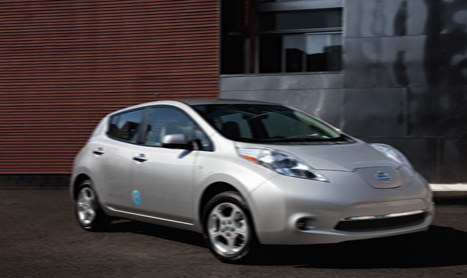ANNAPOLIS – Prohibiting cars that run solely on gas from parking at electric vehicle charging stations is elitist, according to Maryland Sen. E.J. Pipkin, R-Cecil.
Regardless, the Senate is poised to vote in favor of a bill that would do just that.
“I think the idea we’re going to create a preferential class for expensive vehicles is wrong,” he said.
Pipkin is opposing SB 340, a bill that would impose fines on people who park a non-plug-in vehicle at an electric charging station.
“We’re using the power of the state to further one particular private business. I think that is not appropriate,” Pipkin said.
The LEAF, Nissan’s electric car model, gets about 100 miles per charge – not far compared to internal combustion engine standards. Access to electric charging stations is necessary for LEAF owners to get from place to place efficiently.
The LEAF’s main electric competition, the Chevrolet Volt, gets an average of 35 miles per charge. When the charge runs out, the Volt’s gas engine works with the car’s electric components to give it a total range of about 375 miles.
Doug Kornreich, a Nissan LEAF owner from Elkridge has had trouble with others parking their gasoline cars in front of the charging station at his local Walgreens.
“It should be thought of as refueling rights because I can’t park anywhere else and charge,” he said, in response to Pipkin’s argument against the bill. “When I go down to College Park, if I can’t park in one of those spots, it’s going to be a challenge for me to get home.”
Sen. Jamie Raskin, D-Montgomery, the bill’s sponsor, feels it is important to show that Maryland is friendly to the burgeoning electric car industry, which could bring business to the state down the road.
“This is a fledgling industry that we’re getting behind,” Raskin said. “And we’re hoping, as the president of the United States has said, that this becomes big business in America … this is a very small gesture of accommodation.”
Raskin also feels electric car owners have a right to charge their vehicles at a charging station the same way other car owners have the right to fuel up at a gas station.
“They need to charge up their vehicles by plugging them in and the problem is they’re pulling into the relative handful of places that exist in the state where you can plug your car in and people are parked there.”
Capital News Service’s Tom McParland contributed to this report.

